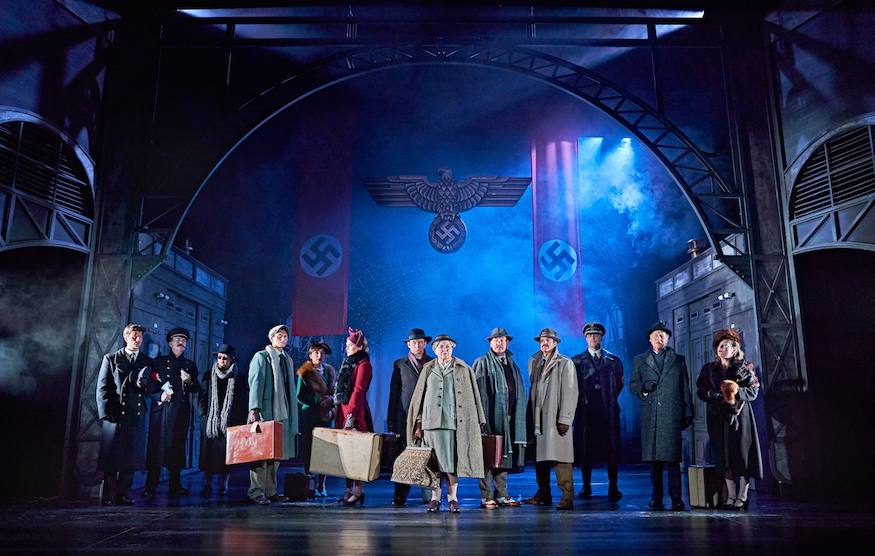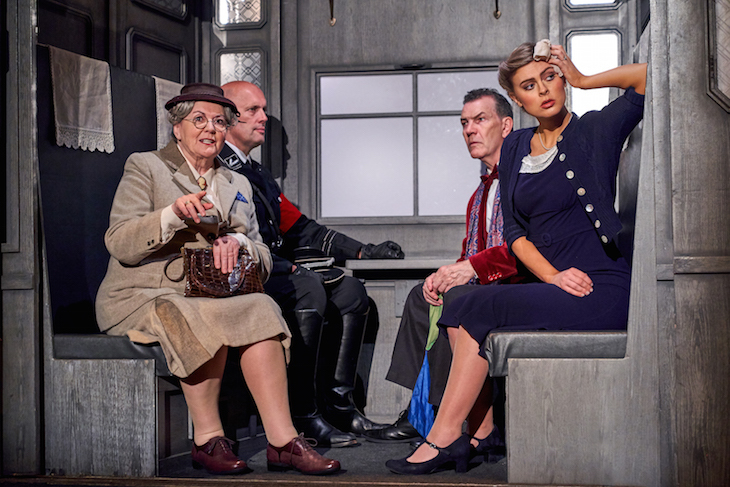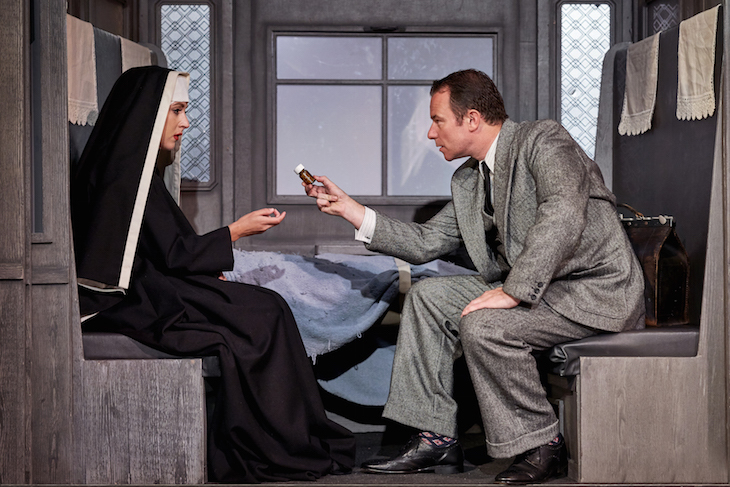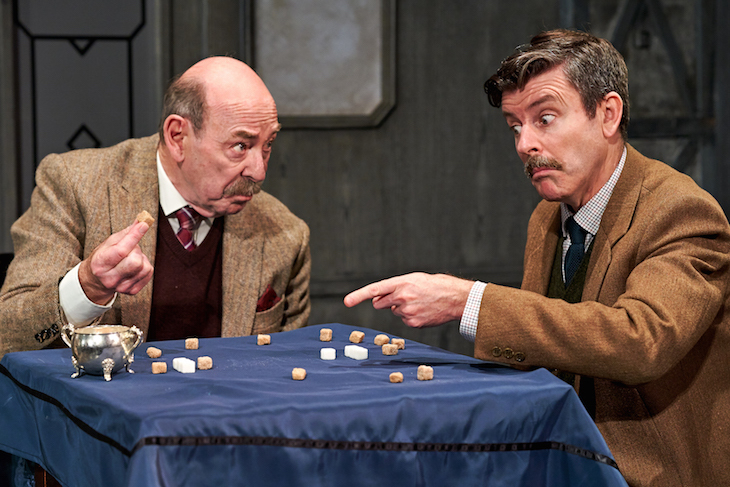Theatre Review: The Lady Vanishes At Fairfield Halls
Looks like this article is a bit old. Be aware that information may have changed since it was published.
Last Updated 27 November 2019

Classic thriller it may be, but this production of The Lady Vanishes is as creaky as old floorboards. Not even this experienced cast can breathe life into a plot that’s been dead as long as this.
Regional repertory theatres used to churn out this sort of stuff by the yard, and without any updating, it's not so much period drama as museum piece. It probably seemed old-fashioned in 1939 — an early hit for Hitchcock, who’d borrowed it from long-forgotten English crime writer Ethel Lina White.

While travelling through Europe by train, Iris (Scarlett Archer) befriends Miss Froy (Gwen Taylor), a matronly Englishwoman who mysteriously disappears. No-one else on the train remembers her or believes her story — except the annoyingly schoolboyish Max (Nicholas Audsley, with much cheeky-chappy charm). So far so Hitchcock, but the mystery plot topples into Allo Allo territory with Germans who are organised and ruthless (shades of Herr Flick in a leather-clad Joe Reisig as the Nazi officer), French who are tres Francais, and Englishmen who make themselves understood by SHOUTING LOUDLY AND SLOWLY.
After a couple of hours of this, you may conclude that Iris would have been better off letting the lady stay vanished. The dated slang and cultural references, lost on anyone who isn’t a devotee of Dad’s Army reruns, drag down the plot, although that doesn’t take much doing with something this implausible.

The cast struggles to make sense of Roy Marsden’s clunky direction, with far too much busy-ness in the crowd scenes obscuring the business itself, and a lot of acting with backs to the audience. The sets don’t help much either. A coy pair of Nazi banners unfurling to signal we’re in 1930s central Europe sets an irritating tone from the start. Things aren’t much better once onboard the train, with actors struggling to convey either its movement or scale. The depth of the train’s compartments, which could have been used much better, is a wasted opportunity.

The characters also have little depth. This isn’t the actors’ fault: it’s commonplace in the mystery genre, although almost everything is heavily semaphored as though being played for laughs but then delivered straight on. The situations, perhaps plausible in the paranoid 30s when Hitler was on the prowl, seem faintly ridiculous today: the maid carelessly flinging a significant teabag at Max’s feet, the Schubert theme apparently conveying a super-important secret message — what, we are never told — for Winston Churchill.

That said, it’s not entirely without charms. The latter half of the second act picks up pace with a spirited, if unconvincing, gunfight between the Brits and some offstage Nazis. The jolly old sporting gents Charters and Caldecott are likably realised by Denis Lill and Ben Nealon, their cricketing buffoonery providing comic relief to the humourless Gestapo.
And Taylor, durably upholstered in oatmeal tweed, is a recognisable presence off the TV, giving the audience an anchor. The mystery part of the play — Miss Froy’s disappearance and Iris’s desperate attempts to convince her fellow travellers — is, at least, convincingly chilly. But as Miss Froy remarks to the drowsy yet protective Iris: “There’s a fascinating acrostic in this issue of The Needlewoman that I intend to solve while you’re asleep.” Sadly, she could have said that to the audience without a beat, too.
The Lady Vanishes, Fairfield Halls, Park Lane, CR9 1DG. Tickets £15-£43.50, until 30 November 2019.



